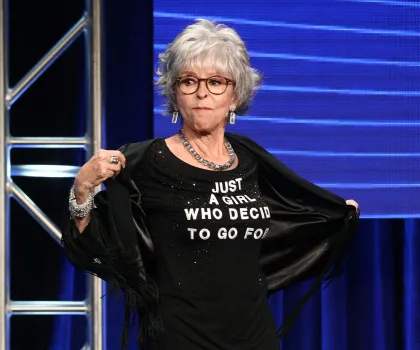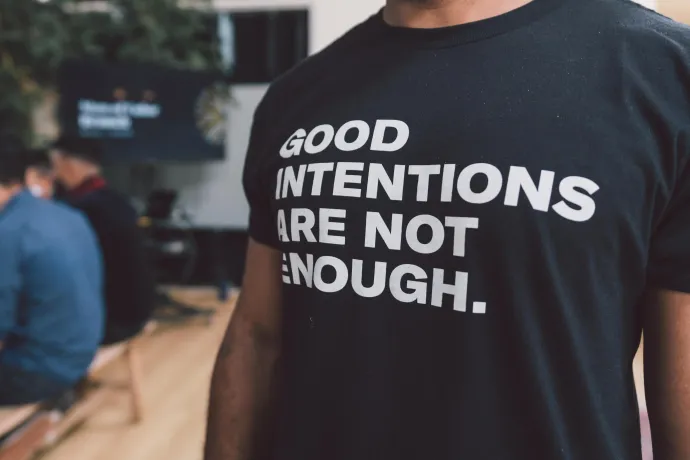Am I Really Latina?
Lois K. shares how her mother’s feminism took her by surprise, and years later helped her face her own biases to discover greater diversity in her perceptions of Latina feminists.
How many Latinas snow ski? That sounds like the set up to a joke, but I'm kind of curious.
I recall being fourteen years old, riding a ski lift with a family friend, on vacation in Colorado. The day was bright and still, the sparkling snow far beneath our dangling skis was brilliant. I felt open, abundant, a sense of limitless potential. What else could I feel? The world was ferrying me aloft in an open carriage with beautiful vistas and calm skies.
I was born to an American dad and a Mexican mom, both of whom have graduate degrees and worked full time. I've had the privilege to visit Europe four times. And as a youth, our church organized ski trips every spring break. These experiences are not what typically comes to mind when someone would ask me, "¿Eres Latina?"
On that day on the lift, my friend Carey and I enjoyed a meandering conversation, exploring topics vast and deep. She was the same age as my mom. I'm sure I was dominating the conversation and she was probably being polite about it. We were talking about feminism; she was trying to define it, and I didn't get it. I had the audacity to assume that I had all the same opportunities and rights as any boy would have. I always knew I'd get to vote. I could travel. I could buy things. I'd have the same say in running my household as my future husband (if I ever got married).
We were talking about feminism; she was trying to define it, and I didn't get it. I had the audacity to assume that I had all the same opportunities and rights as any boy would have.
So what was this feminism thing and why should I care? Her laughing response was that I was already a feminist because I believed women should have the same rights as men. At fourteen, I was happy with this definition and the new association. So I asked Carey why my mom wasn't a feminist? Carey asked what I meant. I said that my mom didn't stand up for herself, didn't give herself equal status as men, she deferred to Dad, and was polite and accommodating instead of assertive. She was opinionated, but only in private. My conclusion therefore was that she was not a feminist.
Carey gave me context on Mom's background. While I was growing up with assumptions of equality on all fronts, that was not what Mom grew up with. She grew up in Mexico with firm and distinct gender roles, within a culture where machismo is not just tolerated but lauded, where she and her sisters were expected to help cook and tend house while the sons were pampered, apparently in anticipation of when they'd be working hard as sole-income earners to large families. Mom did not grow up with the right to vote (it was granted in Mexico in 1953 when she was ten). As the eldest female, she was seen as the second mother to her siblings. Whenever Mama Elvira was not available, Mom cooked, helped siblings with homework, made sure the other kids were dressed, and sent them off to school.
But then her story takes a twist.
My mom walked away from all that. She had the nerve to finish preparatoria (the equivalent of US high school). She secured a scholarship to get a university degree, in the United States no less. And she moved out of the family home. She walked away from the role that was expected of her. She graduated and married an American man. And as if that wasn't rebellious enough, she travelled further abroad to Scotland to teach.
So, yes, apparently not only can Latinas ski, we can travel to Europe too.
I knew these facts, but I hadn't previously strung them together. Feminism, within a cultural background, varies. Mom had much to overcome to pursue her dreams. She wasn't the same kind of feminist I was becoming. In fact, I could afford to be adamant and vocal about equality, I didn't have to fight cultural and social norms at the same time. Her type of feminism opened doors for my type.
Forcing myself through the discomfort of hard questions, I suddenly face the appalling realization of my own biases, the same ones I had 30+ years ago.
So here I am, a Latina feminist – yet feeling like an imposter. Why do I not feel Latina? What does this feeling have to do with skiing? Forcing myself through the discomfort of hard questions, I suddenly face the appalling realization of my own biases, the same ones I had 30+ years ago. Just as I had previously limited the definition of feminist and excluded my own mother, I was now limiting the definition of Latina to exclude myself. Worse, I was doing this through stereotyping. For all my feminist and liberal leanings, I still had a mental image of Latinas as poor, less educated, and untraveled. My mental image did not include corporate offices or positions of influence. I had thought I'd find my Latina community as Spanish-speaking stay-at-home mothers, shepherding a bevy of children, making enchiladas for school potlucks. It's horrible to admit my thoughts, let alone commit that sentence to paper.
My imposter fears are based in stereotyping my own racial heritage.
That's my hypocrisy, I've been looking down on other Latinas, just as I had looked down on my mother while riding the high and lofty ski lift. How shocking and sad to discover I held such ingrained biases. How horrifying that I was silently perpetuating stereotypes by not seeing Latinas in all the places we exist. How condescending to want to identify with this group and yet not see them right in front of me.
Latinas may be moms, we may ski, we may travel, we may work – or not. Whatever and wherever we are, it is time to shed the restrictive notions and own our heritage with all its varied complexities.
I recognize Latina women can achieve at the highest level. There are many fine high-profile Latinas, such as SCOTUS Sonia Sotomayor, Astronaut Ellen Ochoa, and EGOT winner Rita Moreno (who also received a Presidential Medal of Freedom), and I bet you can name many more. I am continuing to rebuild my perceptions, and with humility finally see my way to reclaim my heritage.
Yes, I'm Latina!
Latinas may be moms, we may ski, we may travel, we may work – or not. Whatever and wherever we are, it is time to shed the restrictive notions and own our heritage with all its varied complexities. In accepting others, we can accept ourselves. My eyes will continue to be opened as I discover the new opportunities these realizations bring, and the new ways I can join in contributing to our local and global communities.
"Basta de gritar contra el viento – toda palabra es ruido si no está acompañada de accíon." (Enough shouting against the wind – all words are noise if not accompanied with action.)
- Gloria Anzuldua








We encourage you to share your thoughts on your favorite social platform.